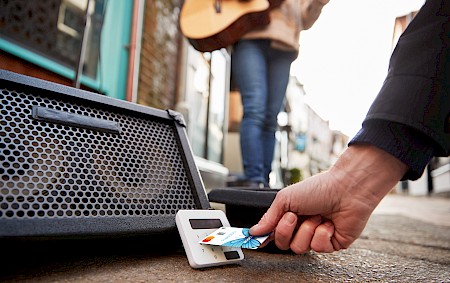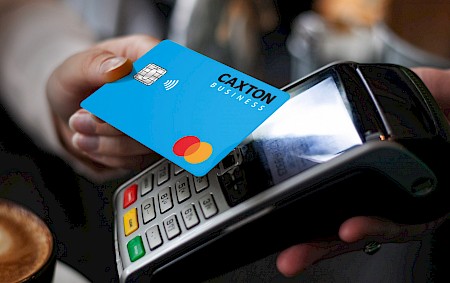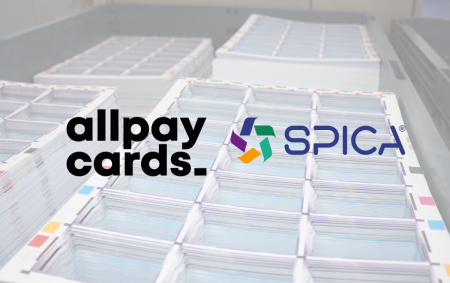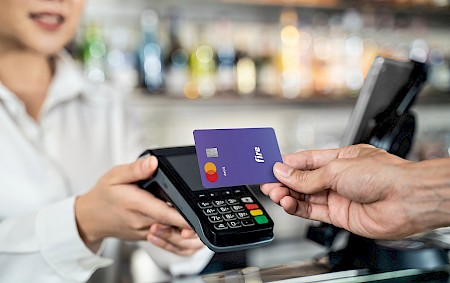Top UK fintech pitches a 100% recyclable card product – that even picks up on antennae.
allpay cards is good to go all-in on a 100% recyclable eco-card – putting a marker down to the global green market.
The process, on which allpay.cards works with recycling partner RPCS, is pitched as using every part of the product, even picking up on antennae.
“Our ambition, coupled with client demand, has driven us to extend our recycling process even further to offer an end-to-end recycling solution for expired payment cards,” said Emily Lovelock, Head of Sales allpay.cards.
With ISO 140001 accreditation, allpay.cards already recycles 100% of its waste cards, plastic skeletons, and any expired product.
Speaking at the PIF Innovation Day event today, Lovelock confirms this client service can now go further with the plastic recycling process now taking in the card chip and antennae - meaning 100% of the card is recycled.
“The cards undergo a regrind process on-site and are then recycled for use in the construction industry,” said Lovelock.
“Our plastic is sourced from a supplier that is part of the Vinyl Plus programme, working to improve the sustainability performance of PVC.
“Up to 92% of CO2 is saved when PVC is recycled and for each Kg of PVC recycled, 2 kgs of CO2 are saved,” she said.
The all-in eco-card reinforces allpay cards as global leader in the ‘greening’ of the fintech, with the company itself having gone green in-house for a number of years.
Ahead of all-in eco-cards, allpay cards introduced a degradable material into its manufacturing process just last month, creating a card with the capacity to decompose under the correct conditions - such as a compost bin.
“It’s made up by 57% sea salt and only 43% crude oil making it less dependent on oil than any other plastics, consequently using less gross energy and therefore having lower impact on global warming,” said Lovelock.
“Eco degradable has the same physical and technical properties as PVC with an additive which accelerates the degradation within microbe rich environments.
“Along with our other card products, allpay cards Eco degradable can be recycled up to 8 times – and we manufacture millions of bill payment cards annually,” she said.
It is an adaptation now boosted by the increasing majority of allpay.cards clients being fintech and challenger banks, many of which do not have physical branches.
“Where the only physical elements of their proposition are their cards and collateral, the importance of branding and quality is key.
“We can back up the eco-cards with a wide range of sustainable stationery using paper which is 100% biodegradable, 100% compostable and 100% recyclable,” said Lovelock.
allpay cards collaborates with partners to offer stationery that is processed chemical free, utilising vegetable-based inks, and water-based machine coating.
“Sustainable packaging uses less water and energy to produce, consequently reducing the impact on the environment,” said Lovelock.
“One important factor is the amount of material used to create each pack, we work with Burgopak to offer combined mailer and envelope solutions, which reduce the material usage but still delivers on user experience.
“There are hundreds of other boards available depending on the customer requirements including wheat fibres, recycled coffee cups, uncoated stocks and materials from FSC accredited suppliers.
“With our approach, we can tailor all of our cards and packaging specifically to individual client requirements while maintaining – and enhancing – the environmental criteria by which the sector is going to be measured in future,” she said.
Since 2000 5.7 million tonnes of PVC have been recycled, saving 11.4 million tonnes of CO2.
Some 6,000,000,000 payment cards are currently produced annually worldwide.





